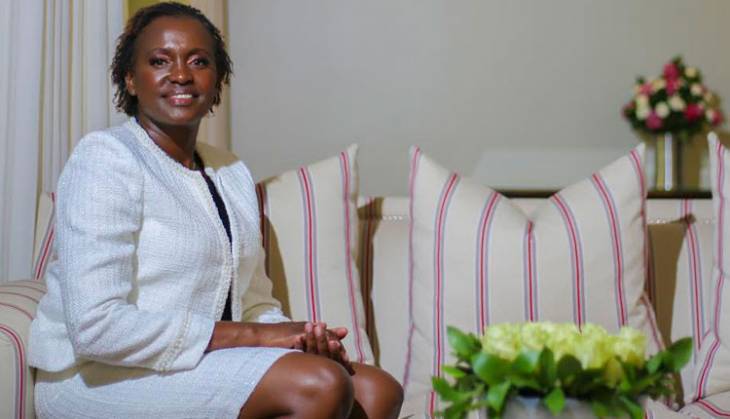Alumni’s role in enhancing education quality in schools
By People.Reporter, January 10, 2022The hardest part of ensuring engagement in school associations is mobilising like minds to respond to the shortcomings their old schools face. Wausi Walya, chairperson Precious Blood (Kilungu) Old girls’ Association explains how school alumni can come through for these institutions
Is there a history to the Precious Blood Girls Kilungu Old Girls Association?
The association was founded and registered in 1992 under the societies rules of 1968.
This was through the effort of students who had attended the school in the 70s. In the earlier days, the alumni met in their homes on rotational basis.
The home visits ensured they stayed connected. They also mobilised resources through fund raising dinners. Eventually, the association began to meet formally.
What motivated you to be part of your former school’s alumni?
I was a student at the school between 1983 and 1986, an opportunity earned on merit after a stellar performance in my Certificate of Primary Education exams in a primary school about 15km away.
This was a dream school for all girls who grew up in the then Eastern province, covering five counties – Machakos, Makueni, Kitui, Embu and Meru.
My dad also served in the school board for nearly 20 years, I noted that the school management thrived on his support and leveraged his influence to manage many stakeholders key to the school’s progress.
What benefits are associated with school alumni associations?
These are great networking groups, a group that makes one feel safe since all members shared the same values at a younger age.
Most likely students will have some common school jokes that form fond memories of the time spent in their alma mater.
The alumni should not be a forum to show off or intimidate others, it should serve as a happy place where fond memories and the old time jokes also have a place.
And if you find any alumni whose hand you can hold the better. Any school that is still operating a board that is not represented by active alumni is missing out on the opportunity for direct support and consistent input from the alumni.
Part of what could be considered as continuity of a solid culture in the schools can be restored by having representation from those who have the school history.
What are the challenges facing alumni associations?
While some schools treat alumni associations with suspicion, others are fully facilitated to engage and complement school programmes.
The participation in alumni programmes and membership registration is still very low.
The member database and, therefore, active members does not seem to grow yet thousands of students leave school every year, a little more commitment to supporting schools is needed.
More alumni need to be committed, to show up with their resources, time, expertise or all.
Why would a school pay so much to an architect or a surveyor, for example, when the same can be extended pro bono and the savings used to pay pending fees.
Many schools do not have formal ways of engaging their alumni, they should keep their doors open and embrace the benefits that come with the association.
However, these associations must be careful not to take over the school’s operation, there must be clear guidelines on how to operate.
What are some of your success stories that others can learn from your association?
Rallying school alumni is both an exciting and a daunting task. The joy witnessed when former schoolmates or even classmates meet is amazing, but at times, the alumni members are not available in the needed numbers, especially career days that require a good ratio of students to career mentors.
The results achieved at national exams are a key concern for alumni, they expect that the school keeps doing well even when they have not actively contributed to possible solutions.
Of course, the school alumni don’t take over what the ministry of education, school administration and school boards should do, but they have ideas and resources that can ease some of the issues.
The alumni who are in places of influence should use this to support the school and there are many ways to do this, especially in getting their circles to give financial support to the needy students, offering free professional services to the school when they need them, attending school events to keep current students motivated among others.
Some of the programmes we have achieved, include career days, teachers’ appreciation lunches, mentoring of student leaders, participation in development projects, especially expanding infrastructure and stocking libraries.
Students need to be told that traditional careers such as medicine, law, architecture, engineering, which have been revered in the past are not the only rewarding ones.
Students must be encouraged to consider and pursue their passion and know their personal choices are the most important even as they consult with teachers and parents.
The association deliberations and transactions must remain above board and this requires adherence to the constitution guiding the engagement of members.
It is important that the alumni membership is formalised through a fee, which is an indication of commitment.
The pressure of the association members to get their school ‘back to where it was‘ is usually heavy around national exams results time.
A lot has changed in the education system over time and in schools from all parts of the country.
A solution-based approach is helpful, with alumni bringing on board innovative ways to support the school. Education is transformational, if we all felt the urge to give back at this alumni level, many more students would benefit from the generous gesture and benefit not only from the funding but also remain inspired by the success of those who came before them.
